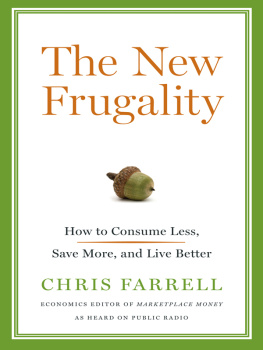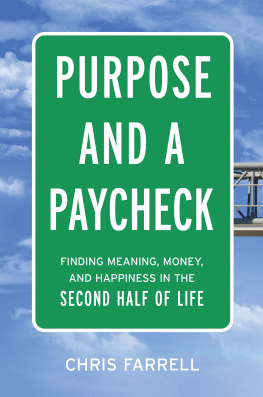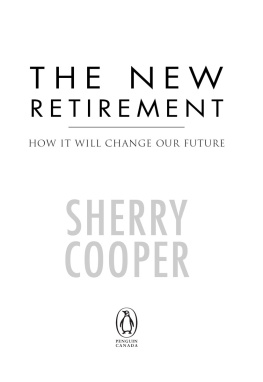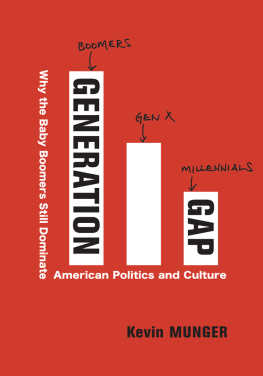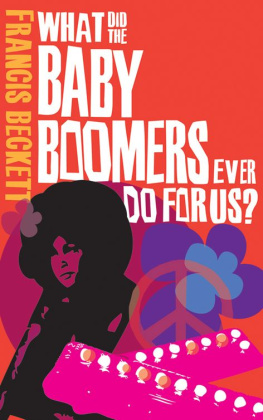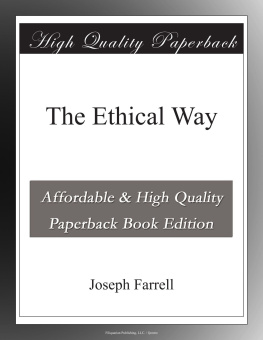
For Peter and Connor
with love, always
Contents
When I was in elementary school , three remarkable women hovered in the background of my family: Aunt Julia, Aunt Agnes, and Aunt Ella. They were nuns with the Sisters of Charity, New York, an order of educators dedicated to helping disadvantaged children, many of them abandoned. I vividly remember their voluminous black habits and black caps, Irish-tinged New York accents, and their eagerness to know what my brother and sisters and I were up to, even when we were very young. They always had a treat for us, a peppermint ball or some other hard candy. They were fun and a little mysterious. After all, they were nuns.
Aunt EllaSister Marie Lucille Farrellstood out. She was kind, smart, and carried herself with authority. She had a remarkable career, including running an orphanage during the Second World War, working at New York Foundling for abandoned children, teaching at the College of Mount Saint Vincent, and establishing Catholic girls schools on Long Island.
The last time I saw Aunt Ella was at the Convent of Mary the Queen, a home for aging nuns in Yonkers. We covered many topics while we walked the corridors. Family. Current events. Education. Poverty. What has stayed with me from the visit is when she signaled it was time to leave. I have to go now to take care of the elderly, she said. Theres work to be done.
She was ninety-six years old.
CHAPTER 1
Let me see what you got
We can have a whoopin good time
Bob Dylan
Two titans of the New Deal were Harry Hopkins and Henry Morgenthau Jr. Hopkins was head of the Federal Emergency Relief Administration and a close confidant of President Franklin D. Roosevelt. Morgenthau was Roosevelts longtime friend and U.S. treasury secretary.
In History of Retirement , historian William Graebner relays the minutes from a phone conversation between them. Hopkins was sick at home. The two New Dealers were on the committee charged by Roosevelt with designing Social Security, the landmark safety net for the elderly signed into law in 1935. At one point their conversation turns to concerns over the swelling numbers of old people in decades to come, relays Graebner.
Morgenthau: Well, Ive gotten a very good analysis of this thing... Im simply going to point out the danger spots and its up to somebody else to say whether they want to do it. Im not trying to say what they should doI want to show them the bad curves.
Hopkins : I wish I was going to be there.
Morgenthau : I wish you were too.
Hopkins : That old age thing is a bad curve.
I thought about the demographics of the bad curve while at the annual meeting of the Gerontological Society of America in 2012. More than thirty-six hundred researchers on old age from more than thirty countries had gathered in San Diego to share their findings. I wandered in and out of sessions and talked to participants during breaks. I sat in on talks titled Older Adult Functions: Risks, Impairments, and Interventions, Managing Chronic Disease, Transportation and Mobility: Avoiding Withdrawal and Isolation, Caring for Persons with Dementia, and Adult Protection and Elder Abuse.
Dementia. Loneliness. Abuse. Talk about a bad curve! After three days of presentations I couldnt stop replaying in my mind the Rolling Stones lyric, What a drag it is getting old.
The Stones gloomy viewpoint is widely shared in America. Since most of us are neither gerontologists nor demographers steeped in the data of aging we cant rattle off the numbers. But we know the message: The U.S. population is getting older. Americans are living longer on average and were having fewer children. The leading edge of the baby boom generationapproximately 76 million born between 1946 and 1964is filing for Social Security and Medicare benefits. According to Pew Research, roughly ten thousand boomers are turning sixty-five every day, a pace that will continue until 2030. The graying of America is a media staple, usually accompanied by dire headlines like demographic crisis and looming catastrophe . Academic scholars and think tank experts routinely issue alarming reports highlighting a wide range of negative economic and social effects from an aging America.
The numbers are striking. Demographers estimate that more than 20 percent of the U.S. population or nearly 81 million will be sixty-five and over in 2030. Thats up from almost 42 million or 13 percent in 2012, according to the Census Bureau. The projected sixty-five-plus population in 2030 is almost equivalent to the current residents of New York, California, and Texas combined. Imagine the Golden State, the Empire State, and the Lone Star State as nothing but giant retirement communities. Youd walk around New York City, Buffalo, and Syracuse, drive all over San Diego, Los Angeles, and San Francisco, visit Dallas, Houston, and Austin and see nothing but people sixty-five and older. Instead of the infamous mom gangs hogging the sidewalks with their strollers in Brooklyns Park Slope neighborhood, maybe an elderly mafia would take over the sidewalks with their walkers. The bike lane on the Golden Gate Bridge could become the wheelchair lane. Bars and restaurants during South by Southwest (SXSW) in Austin would focus on promoting their early bird specials.
Demographic projections unfold over decades, and a sense of impending gloom has long informed the national conversation about an aging population. But now the countrys long-anticipated date of reckoning with older boomers is here. A landmark moment came in 2008 when Kathleen Casey-Kirschlingproclaimed by the press as the nations first boomer because she was born one second after midnight on January 1, 1946started receiving Social Security benefits. Boomers have gone from forever young to forever old, write Laurence Kotlikoff and Scott Burns in The Coming Generational Storm . The aging of America isnt a temporary event, they add. We are well into a change that is permanent, irreversible, and very long term.
The specter of an aging population haunts America. Our public discourse is along the lines of fear and loathing (paraphrasing gonzo writer and baby boom legend Hunter S. Thompson).
Whats behind the sense of a demographically driven apocalypse? Why does the emerging portrait of old age in America spawn so many dire screeds? The elderly have always been with usto state the obviousand opinions about older Americans have varied through the ages, sometimes weighted more toward the positive and at other times slanting toward the negative. The seventeenth-century American poet Anne Bradstreet wrote about the four stages of manchildhood, youth, middle age, and old age. The last was a time of wisdom, when al gave ear to what he had to say, she wrote in The Tenth Muse . If Henry David Thoreau read that line, Bradstreets sentiment would have filled the nineteenth-century American thinker with disgust. Practically, the old have no very important advice to give to the young, their experience has been so partial, and their lives such miserable failures for private reasons, as they must believe, he wrote in Walden .
Wait a minute, Thoreau, I imagine George Dawson saying. The grandson of slaves, Dawson was born in Texas in 1889. In Life Is So Good , published in 2000, the 101-year-old Dawson tells of working on farms, breaking horses, building levees, raising children and grandchildren, living with racism, and learning to read at ninety-eight years old. Elementary school teacher Richard Glaubman was Dawsons scribe. Glaubman remarks to Dawson at the books end, Youve accomplished a lot. Dawson replied, Thats right. Yet, judge me not for the deeds that I have done, but for the life Ive lived. Son, people think one hundred years is a long time. Most folks just dont understand. My life hasnt been so long at all; seems short to me. Its all gone by so fast. Life is so good and it gets better every day.
Next page

